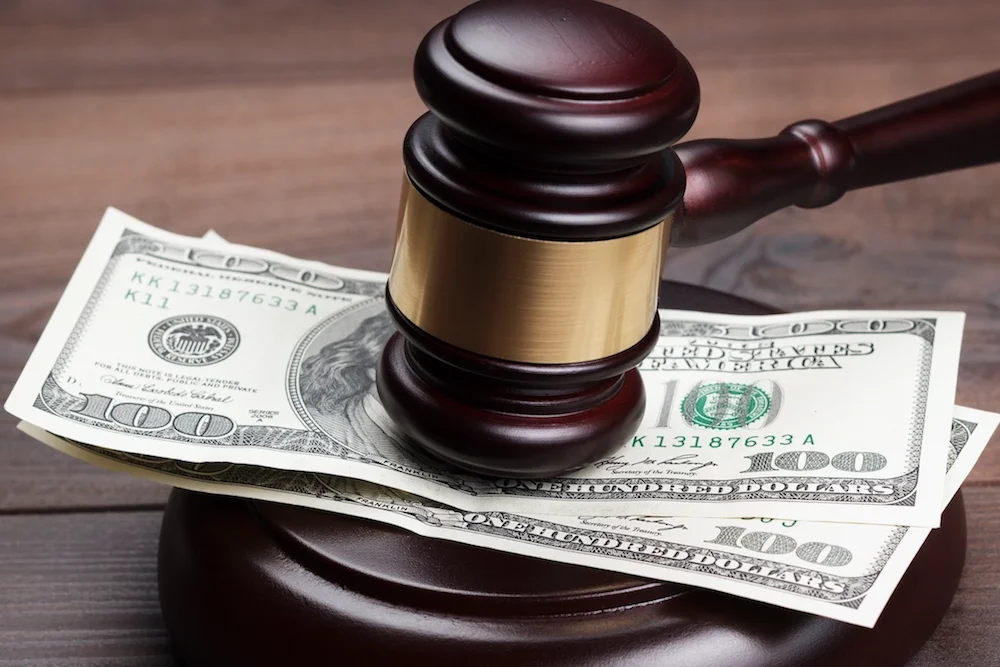PHILADELPHIA – Federal appellate judges have dismissed the case of a casino patron who claims he was unlawfully seized without probable cause by Pennsylvania State Police officers in a dispute over $100 which had allegedly been overpaid to the plaintiff.
In a ruling issued June 5, U.S. Court of Appeals for the Third Circuit judges Thomas I. Vanaskie, Cheryl Ann Krause and L. Felipe Restrepo ruled Alan Greenberg’s case versus Chester Downs and Marina (doing business as Harrah’s Philadelphia), Corporal Michael Gaines and Trooper William Shores of the Pennsylvania State Police and 10 John Doe employees of Harrah’s was dismissed on appeal.
In August 2014, Greenberg filed suit against the defendants in totality over an incident that took place at the Harrah’s Philadelphia casino in December 2012.
On Dec. 6, 2012, Greenberg alleged he was playing poker at Harrah’s when security guard Nikiya Donatelli asked to speak with him and claimed he was overpaid $100 when playing poker at the casino the previous night. Greenberg denied owing the money and asked to see surveillance video proving the allegation.
Donatelli responded the only way that was possible was through a court subpoena and told Greenberg to remain where he was so she could inform officers Gaines and Shores as to the dispute and arrest Greenberg, the plaintiff claimed.
Greenberg returned to his table to continue playing poker, and then asserted he was arrested by Gaines and Shores in the casino approximately 30 minutes later. At that point, Greenberg handed the security guard $100, and the officers left the casino.
Greenberg filed a lawsuit, arguing the responding officers violated the Fourth Amendment through wrongful seizure, a claim which the officers countered with a motion for summary judgment – arguing that Greenberg had not established the elements of his claim because they had probable cause to arrest him and, in the alternative, that they were entitled to qualified immunity.
The District Court granted that motion, agreeing with Greenberg that he had been seized, but concluding that the officers had probable cause to seize him and thus that no constitutional violation had occurred.
During the disposition of the case by the District Court, Harrah’s Philadelphia and its operating companies were dismissed from the case, leaving only Gaines, Shores and the John Doe defendants remaining as parties in the case.
Greenberg appealed to the Third Circuit, arguing that the District Court erred by not finding the officers lacked probable cause to arrest him, a belief which the Third Circuit judges disagreed with in their ruling.
“On appeal, Greenberg does not dispute that the officers were reasonable in their belief that he had come into control of the casino’s property and had failed to take reasonable efforts to return it. Rather, he contends that because he could not view the surveillance video, the officers had no basis to believe that he ‘knew’ he was overpaid or had the requisite intent to unlawfully keep the casino’s property. But this argument conflates the proof that would be necessary to convict at trial with the significantly lower threshold necessary to support a finding of probable cause,” the Third Circuit said.
“Having been informed by Harrah’s surveillance employees and the security guard that Greenberg had been advised he was overpaid and nonetheless refused to return the overpayment, the officers could reasonably infer that Greenberg knew that he possessed the casino’s money and unlawfully intended to keep it. And the officers even went a step further and themselves informed Greenberg that, according to surveillance personnel, he had been overpaid; even then, however, Greenberg would not return the overpayment. Under these circumstances, the officers had probable cause to believe Greenberg possessed the knowledge and intent required under Section 3924,” the appellate judges added.
Greenberg objected to Harrah’s enlistment of police to settle a “non-violent civil disagreement over $100 when Greenberg merely asked for the substantiating known video to so confirm and that the police should not ‘pick sides.”
“This complaint goes to Harrah’s business practices, not the Constitution. It might be preferable in many respects, including the efficient use of both law enforcement and judicial resources, for Harrah’s to allow patrons in Greenberg’s position to confirm the overpayment via surveillance video and then voluntarily make repayment instead of denying patrons that opportunity and requiring the involvement of the police. But under the law, ‘a credible report from a credible eyewitness’ is ‘sufficient to establish probable cause,’ and no constitutional violation occurred when the officers relied on such a report here,” Krause said.
The plaintiff was represented by Matthew B. Weisberg of Weisberg Law, in Morton.
The remaining defendants were represented by Kevin R. Bradford of the Office of the Attorney General, in Philadelphia.
U.S. Court of Appeals for the Third Circuit case 16-1785
U.S. District Court for the Eastern District of Pennsylvania case 2:14-04796
From the Pennsylvania Record: Reach Courts Reporter Nicholas Malfitano at nickpennrecord@gmail.com
